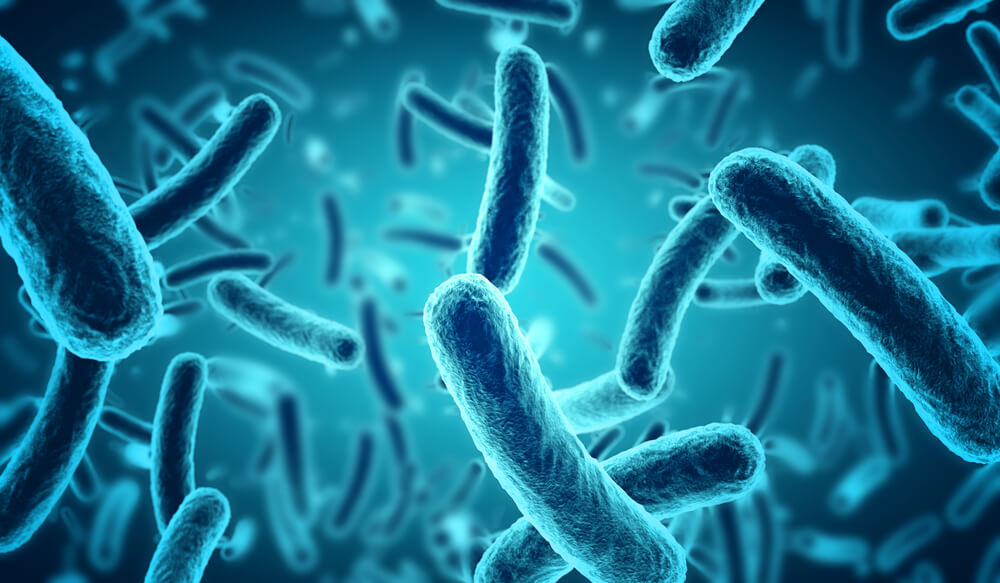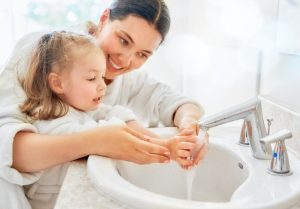Our microbial “lodgers” – an incredible and exciting topic. It is mainly bacteria and fungi that colonize our skin, mucous membranes and intestines, among other things.
In the following article on the subject of germs, health and our immune system, we explain how incorrect colonization with germs can occur, what the causes can be, how to deal with them and how this can affect our immune system and our health.
Positive and negative germs in symbiosis
It is well known that our body is colonized by 10 times more germs than body cells. We live in a symbiosis that is vital for both sides. If we give the beneficial germs their rightful place and look after them, there is no room for potential pathogenic germs. They not only ward off unwanted germs and thus their toxins, but also help us to metabolize nutrients and thus absorb vital vitamins and minerals.
This microbial colonization of our body, i.e. the entirety of microorganisms, is referred to in technical jargon as the microbiome. A possible shift in this microbiome, for example in the gut, can in turn be the cause of tendencies to allergies or even a severe allergy.
A permanent shift in the microbiome can even weaken the immune system and/or cause chronic illnesses. However, it is important not to panic unnecessarily. However, it should show how important a healthy microbial flora is for the immune system and body health. This is why it is so important to always look after yourself and your well-being.
Germs, health and our immune system – what can I do?
Let’s stay with the intestines and the intestinal flora, where diet naturally plays a decisive role. A very high-sugar and acidic diet shifts the pH value, among other things, and this has a decisive influence on the intestinal flora and the colonization of germs.
Every germ has a habitat in which it feels particularly comfortable and thrives. Conversely, this means that if the pH value shifts and the beneficial germs no longer feel comfortable or can no longer reproduce optimally, the functions that are important for the body can no longer be performed to the same extent. In the worst case scenario, these are displaced by pathogenic germs. To counteract this, experts often recommend food supplements containing probiotics, i.e. bacteria that support the intestinal flora or, in the best case, even rebuild it.
Alternatively, antibiotics are also prescribed to counteract pathogenic germs and restore healthy intestinal flora. However, this should always be discussed with an expert.
The importance of pH and skin health
Let’s take another look at the pH value. With regard to our skin, it is just as important to keep this influence on the microbiome in mind when cleansing the skin. This is because cleansers are often alkaline, i.e. they have a high pH value. However, our skin naturally has a pH value of between 4.7-5.5, even if this can vary slightly from person to person. When cleansing the skin with an alkaline cleanser, the pH value is consequently shifted – the result: a rather drying effect on the skin. Therefore, after using these cleansers, products that promote the physiological pH value must be used in order to restore the skin’s moisture balance. Cleansers with a pH value similar to that of the skin, such as the skinicer Repair Cleanser, offer an alternative.
Sounds pretty scientific, but it is worth getting more product information on this to avoid the problems directly. Products can be used which, like probiotics, support the positive germs and can even suppress or combat the pathogenic ones. These include, for example, care products with the microalgae active ingredient spiralin.
The combination with moisturizing and nourishing components promotes healthy and regenerates damaged skin flora. It took 10 years of research to elicit this key to the natural active ingredient Spiralin® from nature.
If you have any questions or exciting suggestions, please write to us at info@ocean-pharma.de
Image source: paulista / shutterstock.com
Experten-Tipp entstand in Zusammenarbeit mit:
Patrick Günther
Patrick Günther completed his pharmacy studies in Hamburg and, after obtaining his licence to practise, worked for several years in marketing and sales in the pharmaceutical industry. In 2003, he took over ocean pharma, the company founded by his father in Reinbek near Hamburg in 1978. Together with his business partner, he patented the important processing and standardisation process for the microalgae active ingredient Spiralin® and developed a wide range of medical cosmetics and foot care products based on Spiralin®.




